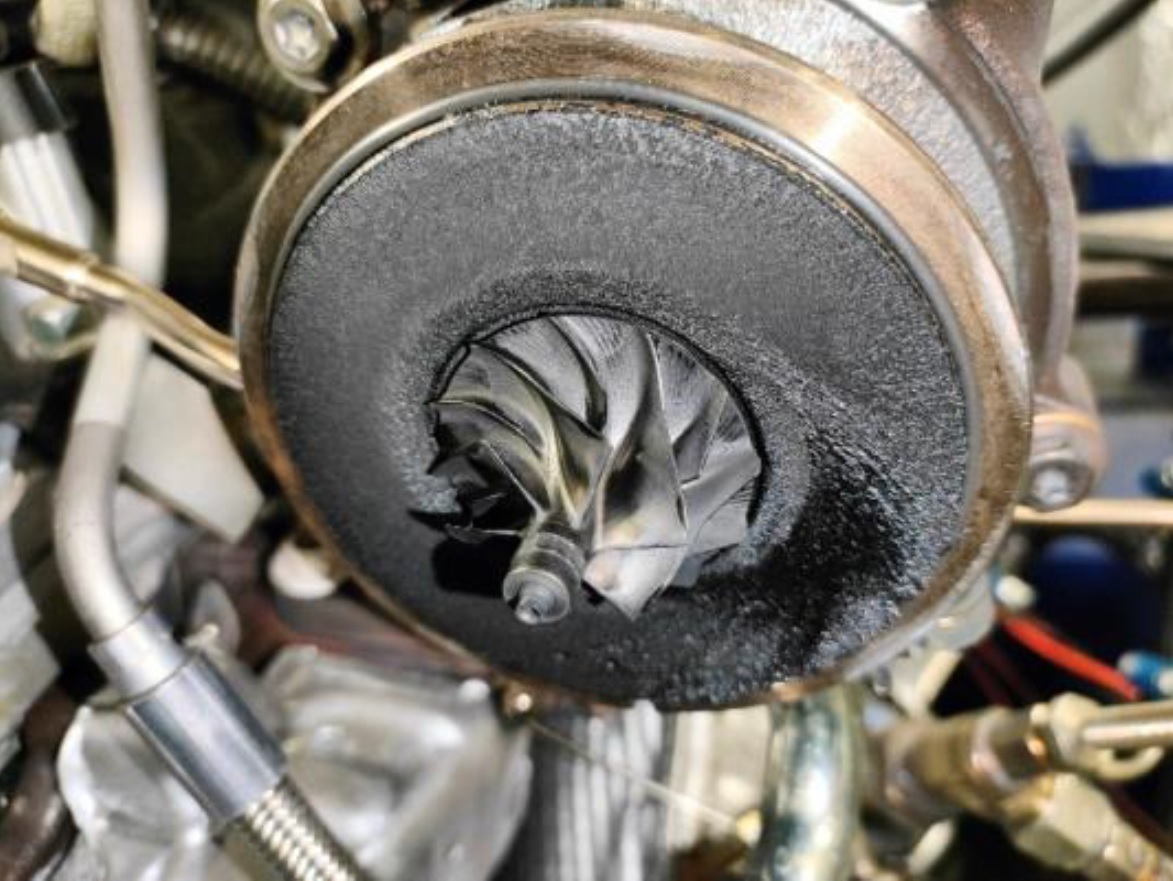Current issue
Online first
Archive
About the Journal
Aims and scope
Publisher and Editorial
Advertising policy
For Authors
Paper review procedures
Procedures protecting authentic authorship of papers
Paper preparation manual
Plagiarism check
Publication ethics
Reviewers
APC
Editorial and Scientific Board
Contact
Reviewers
Analysis of lubricating oil degradation and its influence on brake specific fuel consumption of a light-duty compression-ignition engine running a durability cycle on a test stand
1
Engine Research Department, BOSMAL Automotive Research and Development Institute Ltd, Poland
Submission date: 2023-06-05
Final revision date: 2023-07-07
Acceptance date: 2023-07-11
Online publication date: 2023-08-05
Publication date: 2023-11-11
Corresponding author
Rafał Sala
Engine Research Department, BOSMAL Automotive Research and Development Institute Ltd, Poland
Engine Research Department, BOSMAL Automotive Research and Development Institute Ltd, Poland
Combustion Engines 2023,195(4), 109-115
KEYWORDS
TOPICS
ABSTRACT
The Euro 6 emission standard required compliance with legal exhaust emissions limits for newly registered vehicles and obligates light duty vehicle manufacturers to respect the 160,000 km durability requirements for in-service conformity. Although there is no legal limit set for fuel consumption, manufacturers are obligated to decrease the carbon footprint of vehicle fleets in order to obtain carbon neutral mobility beyond 2035.
The aim of this paper is to analyse the impact of various oils’ and viscosity grades’ degradation on the change in break specific fuel consumption (BSFC) measured over a standardized durability test cycle. Each oil candidate underwent 300 h of durability test running performed on a test bed, without any oil changes. The purpose of the laboratory test was to reproduce the worst-case operating conditions and degradation process of the long-life engine oil type that can be experienced during extreme real life driving of a vehicle.
In order to define the influence of the engine oil deterioration on the BSFC profile, the engine operation parameters were continually monitored throughout the test run. Additionally, chemical analysis of the oil was performed and the solid deposits formed on the turbocharger’s compressor side were evaluated.
The test results revealed differences up to 3.5% in the BSFC values between the oil candidates tested over the durability cycle. The observed BSFC increase was directly related to the decrease in engine efficiency and can cause higher fuel consumption of the engine, which in turn has an adverse effect on environmental protection goals.
REFERENCES (15)
1.
Ayodhya AS, Narayanappa KG. An overview of after-treatment systems for diesel engines. Environ Sci Pollut Res Int. 2018;25(35):35034-35047. https://doi.org/10.1007/s11356....
2.
Baskov V, Ignatov A, Polotnyanschikov V. Assessing the influence of operating factors on the properties of engine oil and the environmental safety of internal combustion engine. Transp Res Procedia. 2020;50:37-43. https://doi.org/10.1016/j.trpr....
3.
Boikov DV, Bugai TB, Mal’kov YP. Features of aging of engine oil in a gas engine. Chem Technol Fuels Oils. 2007;43(4):299-304. https://doi.org/10.1007/s10553....
4.
Devlin M. Common properties of lubricants that affect vehicle fuel efficiency: A North American historical per-spective. Lubricants. 2018;6(3):68. https://doi.org/10.3390/lubric....
5.
Idzior M. Aging of engine oils and their influence on the wear of an internal combustion engine. Combustion En-gines. 2021;185(2):15-20. https://doi.org/10.19206/CE-13....
6.
Kardos S, Pietrikova A. Evaluation of motor oil characteristics and degradation factors for possibilities of continuous diagnostics. Acta Electrotechnica et Informatica 2016;16: 20-24. https://doi.org//10.15546/aeei....
7.
Kozak M. A comparison of thermogravimetric characteris-tics of fresh and used engine oils. Combustion Engines. 2019;178(3):289-292. https://doi.org/10.19206/CE-20....
8.
Krakowski R. Research on the effect of the effective microorganisms, silver solution and colloidal nanosilver addition on the engine oil acid number (TAN). Combustion Engines. 2021;186(3):59-63. https://doi.org/10.19206/CE-14....
9.
Liu Z, Gangopadhyay A, Lam W, Devlin M. The effect of friction modifiers and DI package on friction reduction potential of next generation engine oils: Part I fresh oils. SAE Technical Paper 2018-01-0933. 2018. https://doi.org/10.4271/2018-0....
10.
Sagawa T, Nakano S, Bito Y, Koike Y, Okuda S, Suzuki R. Development of low viscosity API SN 0W-16 fuel-saving engine oil considering chain wear performance. SAE Int J Fuels Lubr. 2017;10(2):469-477. https://doi.org/10.4271/2017-0....
11.
Shao H, Roos J, Remias J. Evaluation of the role of lubricant additives in emission control. Lubricants. 2022;10(12):362. https://doi.org/10.3390/lubric....
12.
Stepien Z, Urzedowska W, Oleksiak S, Czerwinski J. Research on emissions and engine lube oil deterioration of diesel engines with BioFuels (RME). SAE Int J Fuels Lubr. 2011;4(1):125-138. https://doi.org/10.4271/2011-0....
13.
Tormos B, Novella R, Gomez-Soriano J, García-Barberá A, Tsuji N, Uehara I et al. Study of the influence of emission control strategies on the soot content and fuel dilution in engine oil. Tribol Int. 2019;136:285-298. https://doi.org/10.1016/j.trib....
14.
Wolff A, Koszałka G. Influence of engine load on piston ring pack operation of an automotive IC engine. Combustion Engines. 2022;190(3):88-94. https://doi.org/10.19206/CE-14....
15.
Zhang Y, Ma Z, Feng Y, Diao Z, Liu Z. The effects of ultra-low viscosity engine oil on mechanical efficiency and fuel economy. Energies. 2021;14(8):2320. https://doi.org/10.3390/en1408....
CITATIONS (1):
1.
The analysis of the impact of the storage period of engine and transmission oil on operational properties
Krzysztof Lew, Paweł Wojewoda, Janusz Lubas
Combustion Engines
Krzysztof Lew, Paweł Wojewoda, Janusz Lubas
Combustion Engines
Share
RELATED ARTICLE
We process personal data collected when visiting the website. The function of obtaining information about users and their behavior is carried out by voluntarily entered information in forms and saving cookies in end devices. Data, including cookies, are used to provide services, improve the user experience and to analyze the traffic in accordance with the Privacy policy. Data are also collected and processed by Google Analytics tool (more).
You can change cookies settings in your browser. Restricted use of cookies in the browser configuration may affect some functionalities of the website.
You can change cookies settings in your browser. Restricted use of cookies in the browser configuration may affect some functionalities of the website.



